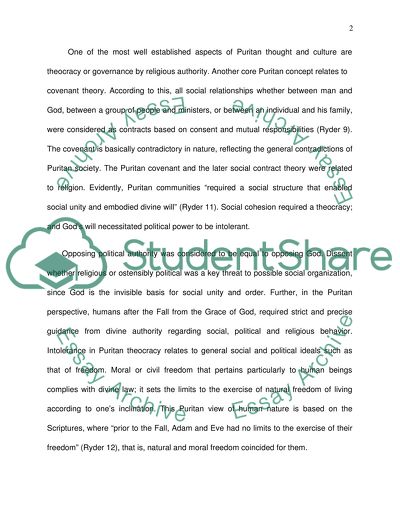Cite this document
(“Puritan Thought and Culture Essay Example | Topics and Well Written Essays - 2750 words”, n.d.)
Retrieved from https://studentshare.org/literature/1412349-puritan-thought-and-culture
Retrieved from https://studentshare.org/literature/1412349-puritan-thought-and-culture
(Puritan Thought and Culture Essay Example | Topics and Well Written Essays - 2750 Words)
https://studentshare.org/literature/1412349-puritan-thought-and-culture.
https://studentshare.org/literature/1412349-puritan-thought-and-culture.
“Puritan Thought and Culture Essay Example | Topics and Well Written Essays - 2750 Words”, n.d. https://studentshare.org/literature/1412349-puritan-thought-and-culture.


